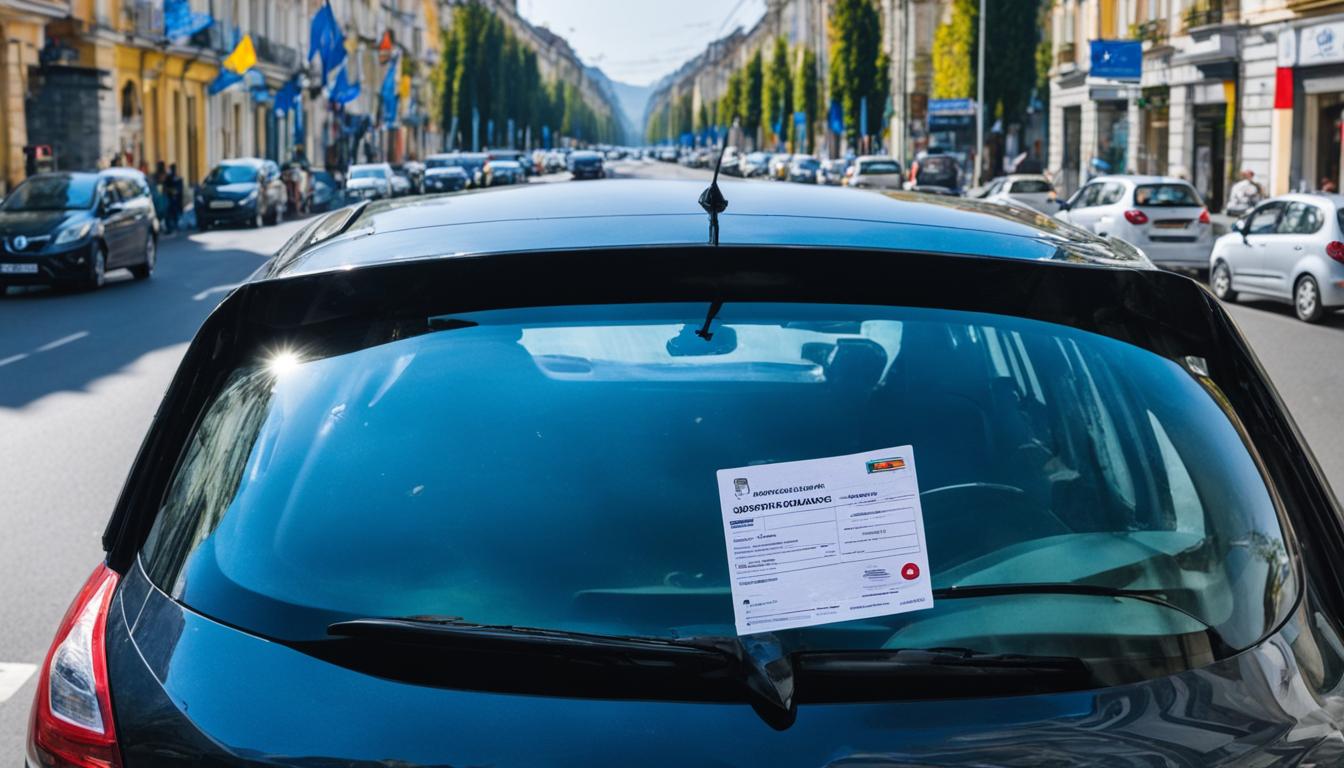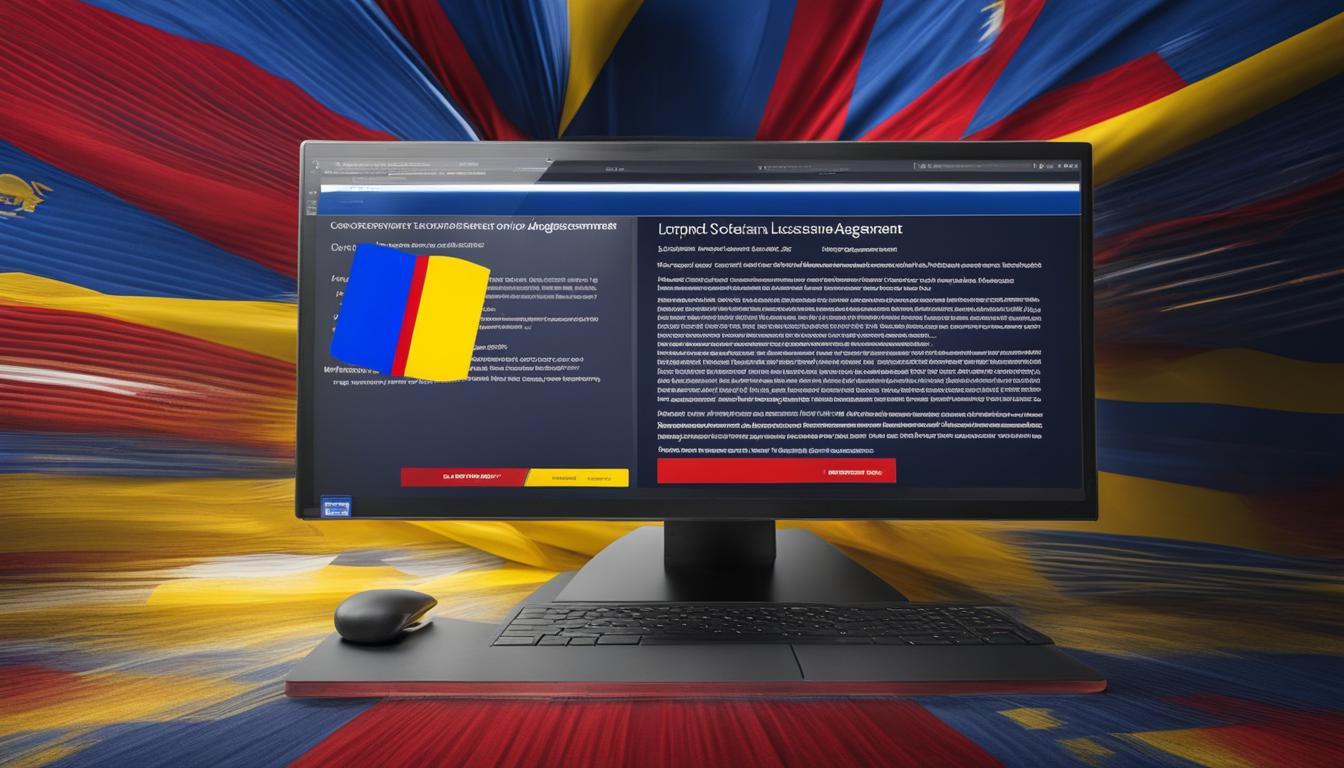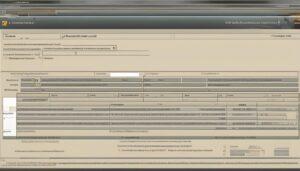Mandatory Car Insurance Policies in Romania: RCA Regulations and Coverage
If you own a motor vehicle in Romania, it is essential to have a mandatory car insurance policy that complies with the regulations set forth by the Romanian authorities.
This type of insurance, known as the mandatory civil liability insurance policy for motor vehicles (RCA), is required by law to ensure that all vehicle owners have coverage for damages caused to third parties.
The RCA policy is governed by Law No. 135/1996 and Norm No. 39/2016 on insurance and reinsurances in Romania.
It is mandatory for every registered motor vehicle to have a valid RCA policy that lasts for a period of 1 to 12 months.
It’s important to understand the regulations and coverage of RCA insurance to make an informed decision about your car insurance policy.
In the following sections, we will delve into the risks covered by the RCA policy, the indemnification limits, exclusions from coverage, the liability of the insurer, and the compulsory nature of RCA insurance, among other essential topics.
Risks Covered by the RCA Policy
The mandatory civil liability insurance policy for motor vehicles (RCA) in Romania provides coverage for a range of risks.
It is essential for vehicle owners to understand the extent of coverage offered by the RCA policy to ensure they are adequately protected.
The risks covered by the RCA policy include:
- Bodily Injury or Death: The RCA policy provides coverage for bodily injury or death caused to third parties in accidents involving the insured vehicle. This includes damages without a patrimonial nature, meaning that even non-monetary losses are accounted for.
- Material Damages: The policy also covers material damages caused to third-party property as a result of a covered accident.
- Loss of Use: Damages resulting from the lack of use of the damaged vehicle are also included in the coverage.
- Legal Charges: In addition, the RCA policy provides coverage for legal charges incurred by the aggrieved person, such as costs related to legal representation or court fees.
Having comprehensive car insurance coverage is crucial for protecting oneself and others in case of unexpected accidents.
The RCA policy ensures that individuals are financially protected from liability for damages caused to third parties due to the use of their insured vehicle.
Indemnification Limits
The indemnification limits for the RCA policy in Romania are determined by the applicable legislation.
These limits dictate the maximum amount of coverage provided by insurance companies in the event of an accident.
Understanding these limits is essential for both car owners and insurance policyholders to ensure adequate protection.
Let’s take a closer look at the indemnification limits for car insurance in Romania.
Material Damages Limit
The first aspect to consider is the limit for material damages caused in one accident.
Currently, the limit stands at EUR 1,000,000.
However, for accidents that occurred on or after January 1st, 2017, the limit has been increased to EUR 1,220,000.
This means that if your vehicle causes damage to someone else’s property, the insurance company will cover the repair or replacement costs up to the specified limit.
Bodily Injuries and Deaths Limit
In addition to material damages, the RCA policy also covers bodily injuries and deaths resulting from an accident.
The current limit for bodily injuries and deaths, including damages without a patrimonial nature, is EUR 5,000,000.
Similarly to the material damages limit, this limit has been raised for accidents that occurred on or after January 1st, 2017, to EUR 6,070,000.
This means that if someone is injured or killed due to your vehicle’s fault, the insurance company will provide compensation up to the specified limit.
It’s important to note that these limits are subject to the exchange rate on the date of the accident, as communicated by the National Bank of Romania.
Therefore, the actual amount in Romanian currency (Lei) may vary depending on the exchange rate.
Here is a visual representation of the indemnification limits for car insurance in Romania:
| Accident Date | Material Damages Limit | Bodily Injuries and Deaths Limit |
|---|---|---|
| Before January 1st, 2017 | EUR 1,000,000 | EUR 5,000,000 |
| On or after January 1st, 2017 | EUR 1,220,000 | EUR 6,070,000 |
Understanding the indemnification limits of your car insurance policy is essential for making informed decisions about your coverage.
This knowledge allows you to assess the level of protection provided by insurance companies in Romania and ensure that you have adequate coverage for potential risks.
Exclusions from RCA Insurance
When it comes to RCA insurance coverage, there are specific exclusions that you need to be aware of.
These exclusions determine the situations where the insurer will not provide indemnification.
Understanding these exclusions is crucial to ensure that you meet the car insurance requirements and comply with the insurance law in Romania.
- No Civil Liability: The insurer does not grant indemnification if the owner, user, or driver of the at-fault motor vehicle does not have civil liability.
- Driver’s Property: Damages to the property of the driver of the at-fault vehicle are excluded from coverage.
- Insured Vehicle Damages: Damages caused by the insured vehicle to individuals or entities owned or used by the same person or entity are not covered.
- Transportation of Dangerous Products: Damages caused by the transportation of dangerous products are excluded from RCA insurance coverage.
- Fines and Criminal Expenses: Fines, criminal expenses, and expenses incurred within a criminal trial are not covered by the insurer.
These exclusions underline the importance of understanding the insurance law in Romania and ensuring that you meet the necessary requirements for car insurance.
By familiarizing yourself with these exclusions, you can make informed decisions when it comes to obtaining RCA insurance and protecting yourself on the road.
Liability of the Insurer
When it comes to car insurance in Romania, understanding the liability of the insurer is crucial.
The liability of the RCA insurance begins on the day following the expiration of the previous insurance policy, as long as the new policy is obtained by the last day of validity.
This ensures uninterrupted coverage and compliance with the law.
If you do not have valid RCA insurance, the liability begins on the day following the conclusion of the insurance document.
It’s important to note that the liability of the insurer ends at 12:00 a.m. on the last day of validity recorded in the RCA policy or earlier if the vehicle is deregistered or ownership is transferred.
It’s essential to take appropriate action and renew or transfer the policy to maintain continuous coverage.
Additionally, it’s worth mentioning that insurance premiums for RCA policies can be recovered if no indemnifications have been paid or are owed for events that occurred after the insurance validity period.
This ensures that you only pay for the coverage you actually use, providing financial peace of mind.
Summary of Liability of the Insurer
- The liability begins after the expiration of the previous insurance policy.
- The liability begins on the day following the conclusion of the insurance document for individuals without valid RCA insurance.
- The liability ends on the last day of validity recorded in the RCA policy or earlier due to deregistration or ownership transfer.
- RCA insurance premiums can be recovered if no indemnifications have been paid or are owed for events that occurred after the insurance validity period.
Understanding the liability of the insurer is essential for ensuring continuous coverage and compliance with the law.
By staying informed and taking the necessary steps to maintain your RCA policy, you can protect yourself and others on the road.
Cancellation and Termination of RCA Policies
In certain situations, RCA policies can be cancelled or terminated.
If you sell your motor vehicle, you can terminate the policy by presenting supporting documents such as a sale-purchase deed and deregistration certificate.
Additionally, in the event of a total damage declaration, the policy can be cancelled.
In these situations, you have the opportunity to recover the difference between the paid premium and the calculated premium.
It’s crucial to understand the cancellation and termination process for RCA policies.
By following the necessary procedures and providing the required documentation, you can avoid unnecessary charges and ensure a smooth transition in case of vehicle sale or total damage declaration.
Compulsory Nature of RCA Insurance
RCA insurance is legally mandatory for all motor vehicle owners in Romania.
It is required by Law no. 135/1996 and Norm no. 39/2016 on insurances and reinsurances in Romania.
Failure to have valid RCA insurance can result in legal consequences and fines.
To ensure compliance with the law, it is important for vehicle owners to obtain RCA insurance coverage.
| Key Points: | |
|---|---|
| RCA insurance is mandatory for motor vehicle owners in Romania. | |
| Failure to have valid RCA insurance can lead to legal consequences and fines. | |
| It is crucial for vehicle owners to obtain RCA insurance coverage to comply with the law. |
Regulation and Scope of RCA Insurance
RCA insurance in Romania is governed by Law no. 132 of May 31, 2017.
This law establishes the legal framework for compulsory insurance against civil liability for damages caused to third parties in vehicle and tram accidents.
It outlines the scope of RCA insurance, including the obligations of insured persons, territorial limits for coverage, limits of liability, and the responsibilities of the Romanian Motor Insurers’ Bureau (BAAR).
Obligations of Insured Persons
- Obtaining a valid RCA insurance policy for their motor vehicle
- Ensuring continuous coverage without any gaps
- Providing accurate and up-to-date information to the insurer
- Complying with the terms and conditions of the insurance policy
Territorial Limits for Coverage
The RCA insurance coverage extends to the territories of Romania, the Member States of the European Union, the Parties to the Agreement on the European Economic Area, and the territory of the Swiss Confederation.
This ensures that policyholders are protected while driving in these countries and that claims can be filed accordingly.
Limits of Liability
The law sets specific limits of liability for RCA insurance claims.
These limits vary depending on the nature of the damages and the date of the accident.
It is essential for vehicle owners to be aware of these limits to understand the extent of coverage provided by their insurance policy.
Responsibilities of the Romanian Motor Insurers’ Bureau (BAAR)
The Romanian Motor Insurers’ Bureau (BAAR) is responsible for various tasks related to RCA insurance, including:
- Supervising compliance with RCA insurance regulations
- Establishing technical and operational procedures
- Collaborating with other national and international bodies to facilitate claims settlement
- Providing information and assistance to policyholders and injured parties
Overall, the regulation of RCA insurance ensures that both insured persons and injured parties are protected within the specified legal framework.
It sets clear guidelines for obtaining coverage, determining liability, and handling claims, promoting transparency and accountability in the insurance industry.
Definitions in RCA Insurance
The RCA insurance law includes various definitions for terms used in the regulation.
These definitions are in accordance with Law no. 237/2015 on the authorization and supervision of the business of insurance and reinsurance.
Some of the defined terms include:
- Vehicle accident: Refers to an incident involving a motor vehicle that results in damage to third parties.
- High-risk insured person: An individual or entity classified as having a higher probability of being involved in accidents or causing damages.
- RCA insurer: The insurance company providing the mandatory civil liability insurance for motor vehicles.
- Policyholder: The individual or entity that holds the RCA insurance policy.
- Total loss: A situation where the damaged vehicle is beyond repair or its repair costs exceed its market value.
Understanding these definitions is crucial for a clear interpretation of the RCA insurance policy and its terms.
It allows policyholders to navigate the insurance process effectively and ensures compliance with the applicable regulations.
Registration and Claims Process
The registration and claims process for your RCA insurance policy in Romania is a crucial step in ensuring that you receive the coverage and compensation you need in the event of an insured incident.
Here are the key points to understand:
Registration of Damage
If you have been involved in an accident or your vehicle has been damaged, it is important to promptly register the damage with your insurer.
Notify them of the occurrence of the insured event and provide all necessary supporting documents to establish liability.
This includes documents such as the police report, photographs of the damage, and any other relevant evidence.
Submitting Claims
Once you have registered the damage, you can proceed with submitting your claim for compensation.
Claims can be filed directly with your RCA insurer or through the Romanian Motor Insurers’ Bureau (BAAR).
Ensure that you complete all required forms accurately and provide all necessary supporting documentation to expedite the claims process.
Required Documents for Claims Submission
| Documents | Description |
|---|---|
| Police Report | A copy of the official police report filed at the scene of the accident. |
| Proof of Identity | Valid identification documents, such as a passport or ID card. |
| Vehicle Registration Documents | Proof of ownership and registration of the insured vehicle. |
| Photos of Damage | Clear and detailed photographs of the damage to the insured vehicle. |
| Repair Invoices | Invoices or estimates for the repair of the damaged vehicle. |
| Medical Reports | If applicable, medical reports and bills for injuries sustained. |
It is important to note that the claims process may require additional documentation depending on the specific circumstances of the incident.
Ensure that you carefully review the requirements provided by your insurer or the BAAR to facilitate a smooth claims process.
By following the proper registration and claims process, you can ensure that your affordable car insurance in Romania provides you with the necessary coverage and compensation in case of an accident or damage to your vehicle.
Be proactive in providing all required documentation and communicate with your insurer throughout the process to ensure a satisfactory resolution.
Territory and Green Card
The territory covered by RCA insurance extends beyond Romania.
In addition to providing coverage within Romania, the policy also applies to the territories of Member States of the European Union, the Parties to the Agreement on the European Economic Area, and the territory of the Swiss Confederation.
This means that if you have RCA insurance, you can travel within these areas with the assurance that your coverage remains valid.
To facilitate international travel, the Green Card comes into play.
The Green Card is an internationally recognized certificate of insurance.
It is issued by the national motor insurers’ bureau on behalf of the insurer.
The Green Card serves as proof of insurance coverage when traveling to other countries.
With a Green Card, you can confidently drive your vehicle in foreign territories, knowing that you have the necessary insurance protection.
Romanian Lawyers for International Legal Matters
When dealing with legal matters related to international travel or insurance, it is advisable to seek the services of experienced Romanian lawyers.
A reputable Romanian law office can provide expert guidance and representation in legal matters that involve RCA insurance coverage, including issues related to the Green Card.
Romanian lawyers possess an in-depth understanding of both national and international legal frameworks, ensuring that you receive accurate and reliable advice tailored to your specific situation.
Whether you need assistance with insurance claims, international legal disputes, or any other legal matters related to RCA insurance, a Romanian attorney can provide the necessary expertise and support.
Car Insurance in Romania – FAQ
1. What are the mandatory car insurance requirements in Romania?
In Romania, it is mandatory to have mandatory car insurance (RCA) for all vehicles. This type of insurance is required by law for the registration of a car and covers the liability for any damage caused to third parties in case of an accident.
2. What is the difference between RCA and CASCO insurance in Romania?
RCA (mandatory car insurance) is the basic liability insurance for motor vehicles.
In contrast, CASCO insurance is an optional insurance that provides coverage for damage to the insured vehicle, including theft and repair costs.
3. How is the insurance premium calculated for car insurance in Romania?
The insurance premium for car insurance in Romania is calculated based on various factors such as the type of insurance, the value of the insured vehicle, and the level of coverage chosen.
The premium can be paid in RON or EUR to the insurance companies.
4. What should I do if I have a car accident in Romania?
In case of a car accident in Romania, it is important to inform your insurer and the local authorities.
The compensation and indemnification process will be handled according to Romanian insurance and liability laws.
5. Can I use my Romanian car insurance abroad?
Depending on your insurance contract, your mandatory car insurance in Romania may provide limited coverage for travel abroad.
However, it is advisable to obtain additional insurance policies for extended coverage outside of Romania.
Conclusion
Car insurance policies in Romania are essential for all motor vehicle owners in the country.
The mandatory civil liability insurance policy for motor vehicles, known as RCA insurance, provides coverage for damages caused to third parties.
It is governed by specific laws and regulations, including Law no. 135/1996 and Norm no. 39/2016 on insurance and reinsurances in Romania.




 What is the Legal Drinking Age in Romania
What is the Legal Drinking Age in Romania The legal drinking age in Romania is set at 18 years old, and it is crucial for individuals to understand and respect the age restrictions when it comes to the consumption of alcoholic beverages.
The legal drinking age in Romania is set at 18 years old, and it is crucial for individuals to understand and respect the age restrictions when it comes to the consumption of alcoholic beverages. A study conducted in a Romanian city revealed the importance of awareness campaigns in enhancing compliance with age limits for the sale of alcohol, suggesting potential interventions that can be implemented in other Romanian cities to measure and improve age limit adherence.
A study conducted in a Romanian city revealed the importance of awareness campaigns in enhancing compliance with age limits for the sale of alcohol, suggesting potential interventions that can be implemented in other Romanian cities to measure and improve age limit adherence.



